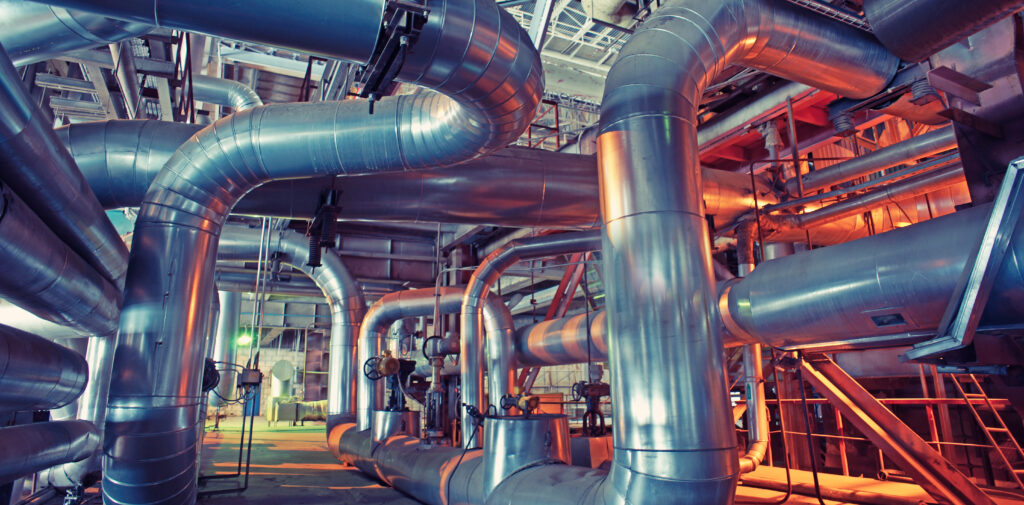Why PFAS are crucial to chemical industry equipment
The chemical processing industry is critical to modern society as it produces a wide range of chemicals, materials, and products that are used in numerous industries and applications. The industry contributes to technological advancements, creates jobs, and helps to maintain the stability and growth of other industries by supplying the raw materials and chemicals they need to operate.
Fluoropolymers, such as Polytetrafluoroethylene (PTFE), Perfluoroalkoxy polymer (PFA), and Ethylene tetrafluoroethylene (ETFE), are used in pipes, expansion joints, vessels, and fittings for the chemical processing industry, with the objective to protect equipment from direct contact at high temperatures (up to 230°C) and very aggressive media, such as hydrochloric acid (HCl), sulfuric acid (H2SO4) or hydrofluoric acid (HF).
When there is no need to protect equipment or chemical products from the effect of corrosion, black steel piping and fitting systems are currently used by the chemical processing industry. Such unprotected steel constructions are usually limited to situations in which chemicals are not corrosive, a short system lifetime (e.g., cycles of 2 years) is acceptable and additional cleaning steps are available. Such cases are not frequent in the chemical process industries, and some form of corrosion protection on the equipment is typically required.
Potential alternatives, such as Polypropylene (PP) and rubber lining systems, could work under a narrower range of operating conditions. These systems would typically withstand temperatures up to 100-120°C without degradation, in comparison to higher temperatures (230°C) that are required for some processes. These alternatives are sufficiently available and at a competitive price in comparison with fluoropolymers and are thus usually used in less extreme process conditions.

